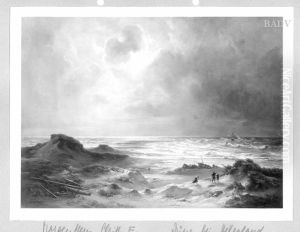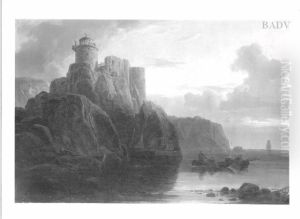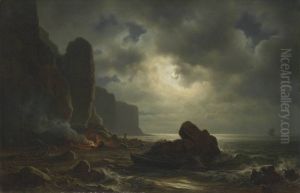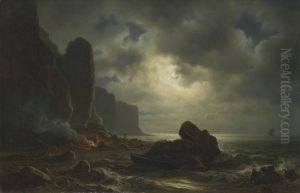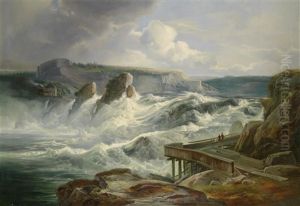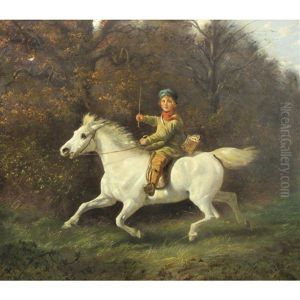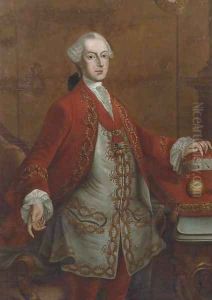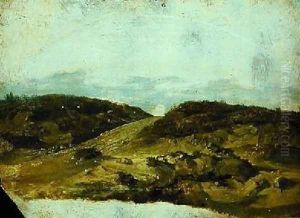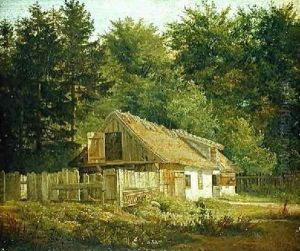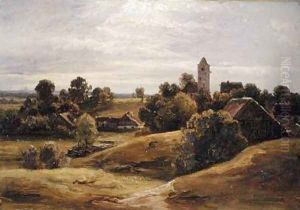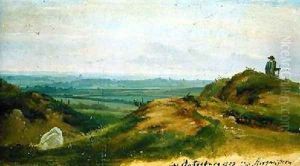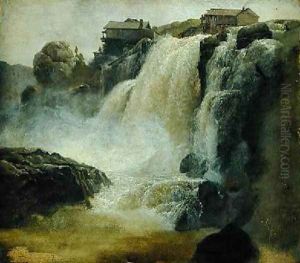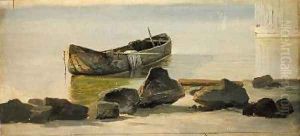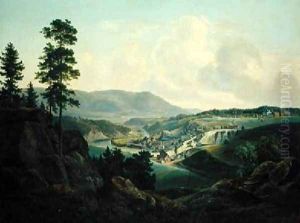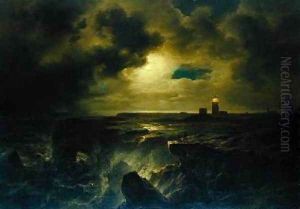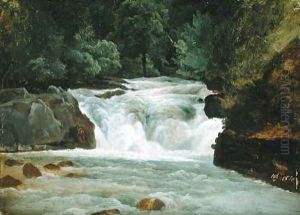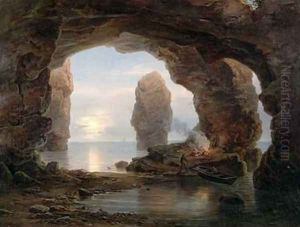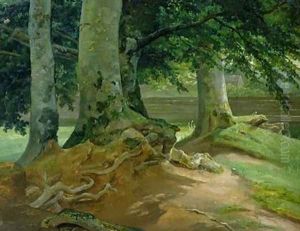Christian Morgenstern Paintings
Christian Morgenstern was a German author and poet, born on May 6, 1871, in Munich, and died on March 31, 1914, in Meran, now known as Merano, Italy. He is best remembered for his humorous and nonsensical poetry, which has endeared him to readers of all ages, and his work has been influential in both literary and philosophical circles.
Morgenstern's early life was marked by tragedy and ill health. He lost his mother when he was just 14, a profound loss that deeply affected him and influenced his later work. Despite his fragile health, he pursued his education with vigor, studying philosophy and literature at various universities, including Breslau and Berlin. His intellectual curiosity and depth of study informed much of his literary output, which ranged from the whimsical to the metaphysical.
His first collection of poems, 'In Phanta's Schloss' (In Phanta's Castle), was published in 1895, showcasing his talent for melding fantastical elements with deep existential queries. However, it was his later collections, such as 'Galgenlieder' (Gallows Songs), published in 1905, that truly captured the public's imagination. These works featured a mix of dark humor, linguistic playfulness, and philosophical pondering, all of which became hallmarks of Morgenstern's style.
Morgenstern's health continued to decline due to tuberculosis, leading him to spend much of his time in various sanatoriums across Europe. Despite his illness, he remained prolific, exploring themes of nature, human folly, and the divine. His poetry often ventured into the absurd and the surreal, reflecting his interest in breaking away from conventional modes of thought and expression.
His philosophical musings were not confined to his poetry; Morgenstern was also deeply influenced by the works of Rudolf Steiner and anthroposophy. This influence is evident in his later works, where he delved into spiritual and esoteric questions, seeking to uncover deeper truths about the human condition and the cosmos.
Christian Morgenstern's legacy is that of a poet who could find laughter in the face of despair, wisdom in the midst of folly, and light in the darkest of places. His work continues to be celebrated for its originality, depth, and capacity to enchant and provoke thought, bridging the gap between the comic and the profound.


